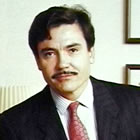
Andreas Gruentzig MD, Inventor of PTCA
The Patient Forum on Angioplasty.Org receives over 40,000 page views a month. And patients who post to the Forum are a very select subset: they are usually patients who have experienced some type of complication.
I’ve called it our “Complaint Dept.”, not to demean or belittle it in any way, but to characterize it for our readers. If you read through some of the topics, you would think that angioplasty is fraught with negatives and the risks outweigh the benefits. And you’d be wrong because the number of complications is the numerator; the denominator is all of the procedures done, currently almost 700,000 PCIs annually in the U.S. alone.
So, complications occur in only a small percentage of cases.
Of course, if you or a loved one is one of those complications, you really don’t care about the percentages; you want help and answers.
This paradox of low occurrence of complications yet high impact on the individual has been around for a long time, but I always remember the comments of Andreas Gruentzig, the inventor of coronary angioplasty, when I interviewed him in 1985. We talked about a wide range of topics, topics that were pressing in 1985 and are moot now, although a few big ones (such as the use of dilatation in complex, multivessel, diffuse disease) are still unresolved. Gruentzig, ever conscious of the patient, discussed the question of complications and had very specific thoughts about the physician’s role.
A short clip from that interview appears below.
A historical note: bear in mind that when Gruentzig is talking about complications, he primarily is referring to the major adverse event that occurred in the early pre-stent days of angioplasty: abrupt closure of the coronary artery which necessitated emergency bypass surgery. In 1985, this occurred somewhere between 2-5% of the time; in 2013, it’s more like 0.1%, because of the significant advances in device technology and procedural care. In fact, recent studies like C-PORT and MASS COMM have shown that hospitals without surgical backup can perform angioplasty as safely and effectively as those with surgical options.
What is important, however, is Gruentzig’s message of caution on the part of the physician and care for the patient.
More of this interview and the story of how Gruentzig got the idea and created the successful therapy of percutaneous transluminal coronary angioplasty is documented in my feature-length award-winning video, “PTCA: A History.”



